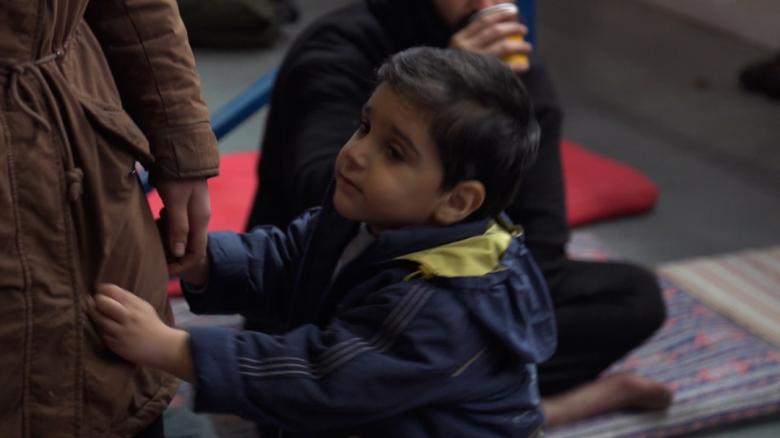The trip could have killed them. But people fleeing economic wreckage in the Middle East say they’d do it 100 times over

Metal rods tower above the people to prop up a giant zinc roof. Azhi, who has splints on his legs, is smiling and wide-eyed. It’s hard to tell that just days before, the boy’s family faced the specter of death.”We want to go to Germany so Azhi can get an operation,” says his mother, 28-year old Shoxan Hussein. “The doctors said he needs to get it done before he turns five.” Halawa, who is British-Iraqi-Egyptian, argues that a major driver of the influx of refugees is the disappearance of legal mechanisms for the entry of skilled workers into Europe. “The fascinating thing to me — if I’m talking about the UK and (Home Secretary) Priti Patel’s immigration point scheme that she introduced — is that my father as a qualified surgeon who went on to serve the NHS for 40 years, would not have qualified for a work visa when he arrived here,” says Halawa. “The mechanisms by which we — in the developed world — allowed people to learn and then keep them here to benefit society are no longer available,” says Halawa. Chatham House’s Haid, a native Syrian, considers himself among the lucky ones. Nearly five years ago, he was granted refugee status in the UK. He says the images of Syrians dying in the English Channel gave him mixed feelings of sadness and personal relief. He also believes that the migration of Syrians will continue unabated. “When things (in Syria) started getting worse despite the decline in violence, that’s when people living there were hit by the reality that things will never get better,” says Haid. “That’s why even those who were refusing to leave the country during the war now feel that there is no solution but to flee, because there is no light at the end of the tunnel. That’s it.” At the same time, Haid feels like he made it to the UK in the nick of time. “You feel lucky to have made it before your window of opportunity, which was rapidly closing, is shut forever,” he says. Back in Erbil, Shoxan Hussein and her husband Ali Rasool believe legal passage to Europe is permanently shut. Rasool, a manager of a property company, and Hussein, an engineer, applied for a visa at the French embassy earlier this year but say they never received a response. “Erbil is better for me and my wife than anywhere else in the world. We have a good car, good clothing,” says Rasool. “But this is all for Azhi … we’ve already done three operations here and have gotten no results. The problem is that (the doctors) are taking money from us and they haven’t made even 5% difference.””If you told me to risk my life 100 times before I got to Europe to improve my son’s life then my wife and I would do it,” he says. “I would repeat this journey 100 times.” CNN’s Zahra Ullah and Matthew Chance contributed to this report from the Bruzgi-Kusnica border region in Belarus.




